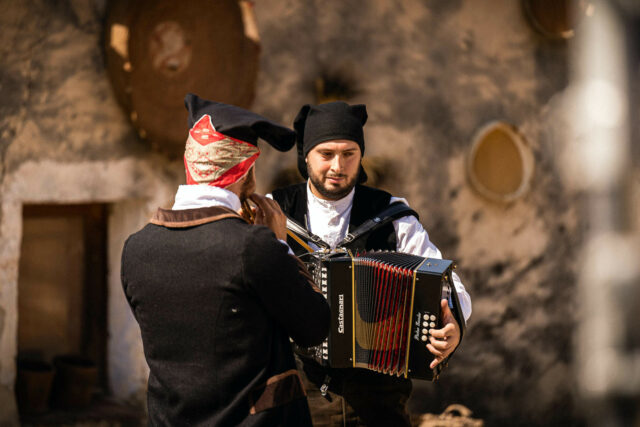
La rassegna estiva
12 06 2023
Ecco la programmazione de La Terra delle Donne per questa settimana. *Più le nostre rassegne estive da qui al 5 luglio!

14 11 2022
The love for the vineyards and for his land has never failed even in the years of estrangement from Sardinia - Innsbruck, Venice, Padua - and led Stefano, with the fraternal advice and spurs of Angelo Angioi and Gilberto Arru, to carry out the project of his own winery. The profession of architect, which he still practices, made this dream possible and the materials used in the construction of the cellar are the same that we find in his work of redevelopment of the historic centers of Sardinia: stone, wood, steel and sustainable insulation such as sheep's wool and cork.
Belonging to that microcosm of which Nuragus is the centre: a small village, dedicated to agriculture and pastoralism, in the heart of the Sarcidano, characterized by those crops - olive trees, vines, pastures and fodder - which shape the agricultural landscape. Hills flooded by the sun and crossed by the mistral and sirocco winds. Soils rich in skeleton or loose sand that still allow the vines, grown in arid culture, to develop very slowly deep roots. Up until a few decades ago, the production of a singularly pleasant wine was important, which is obtained from the nuragus vine, already known in the Phoenician era, called in the local language Axina de margiani, "grape of the foxes" which gives its name to the town. It is difficult to say which criterion inspired the choice of land where to plant the vines: perhaps the exposure, the light, the wind... certainly the energy perceived by walking on it.
Absolute respect for the ancient winemaking tradition of the area, for its sustainable development and for family agriculture, demonstrated by Stefano Soi, an architect who has decided to return to his native places together with his wife Evi and the dog Lillu to continue the his life path with a new philosophy.
By company choice, no water support, no chemical fertilizers, no chemical weeding are given: only frequent mechanical and manual work. The varietal choice was to use only autochthonous vines grafted in the field manually. These include cannonau, bovale muristellu, monica, cagnulari, Sardinian barbera and nuragus. The vines are pruned according to the Simonit & Sirch method, the so-called soft pruning, and the grapes are harvested manually in boxes of approx. 20 kg and immediately start the fermentation.
Comments
Accedi per lasciare un commento- Facebook